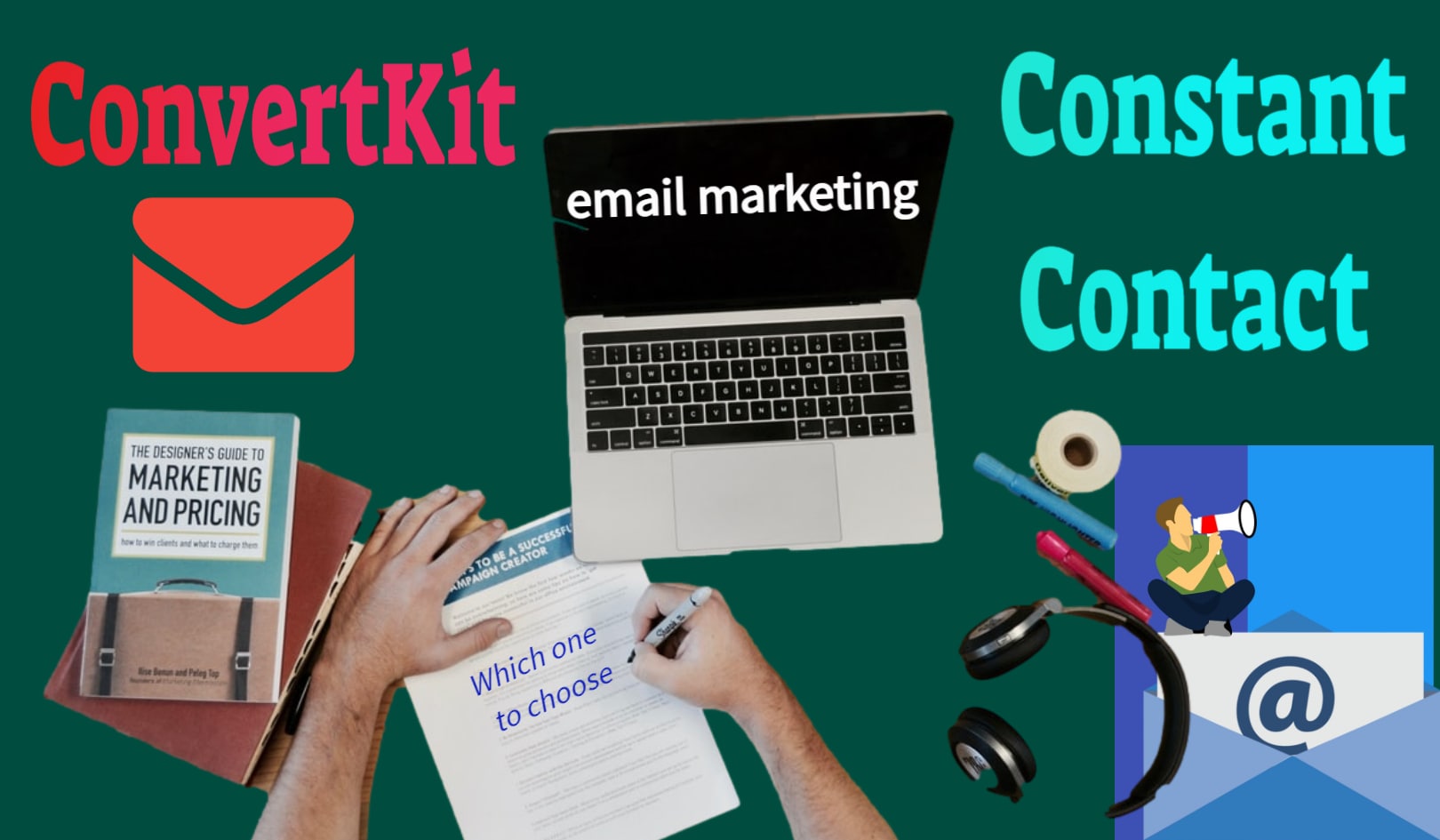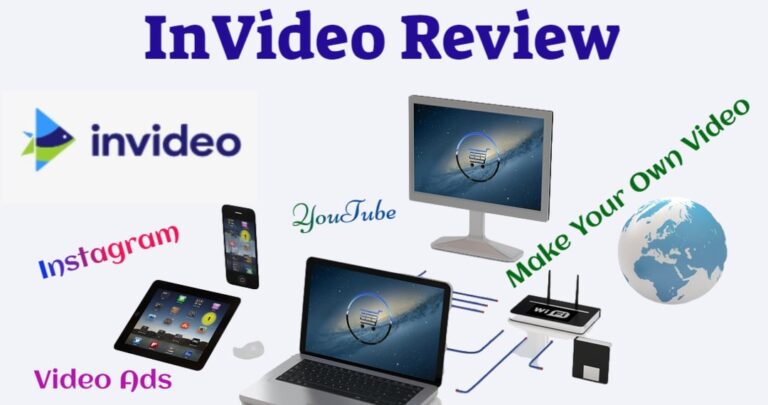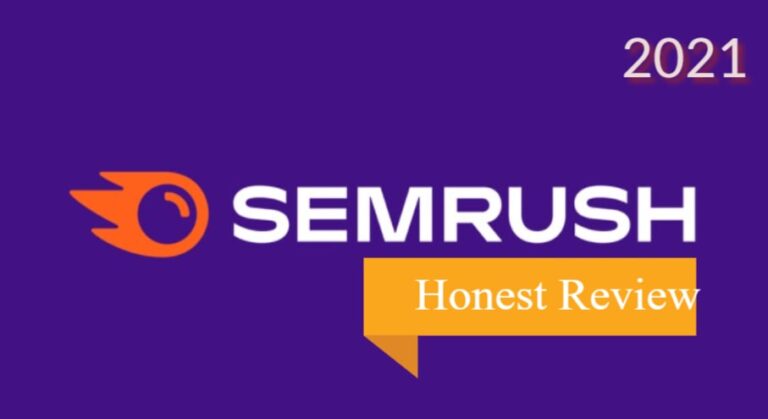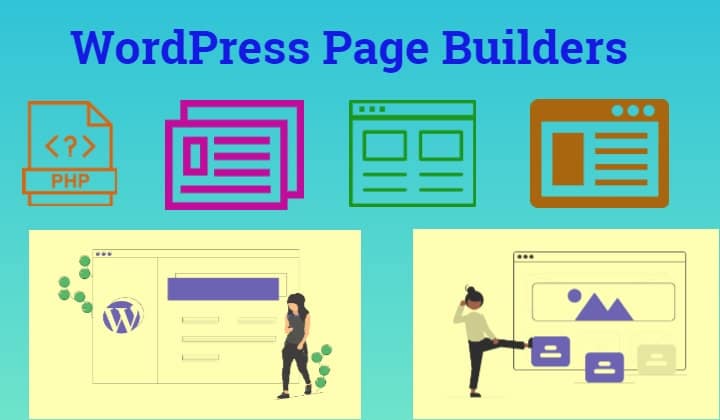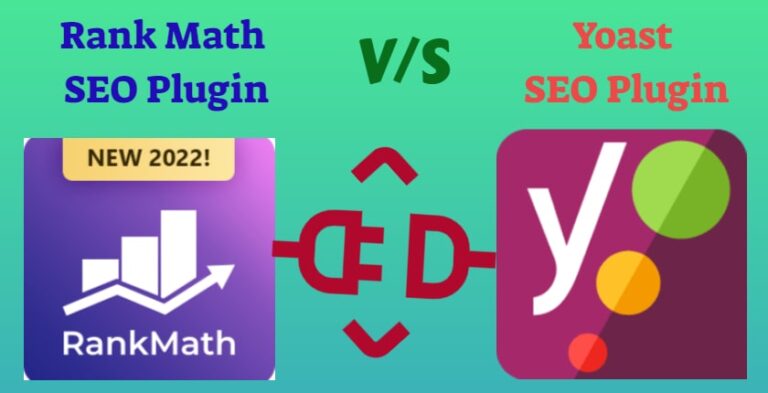ConvertKit vs Constant Contact: Which is Better? [2022]
ConvertKit vs Constant Contact Comparison
There is a never-ending demand for email marketing service providers in this day and age. With the increased use of smartphones, more people are connected than ever before to their emails.
This has seen companies popping up offering different kinds of interfaces as well as both free and paid plans that suit any user’s need. There arises cutthroat competition between each provider with new competitors emerging every year.
ConvertKit and Constant Contact are industry titans that have been around for many years. Both offer excellent services, but which is the better choice? We will compare them in an in-depth analysis to help you make your decision:
ConvertKit vs Constant Contact: Major Differences
Comparing the two popular email service providers, Constant Contact vs Convertkit is like comparing apples to oranges.
One of these platforms will be a better fit for your online business depending on what you are looking for in an email marketing tool.
Let’s dive into each one!
The six major differences between ConvertKit vs Constant Contact are:
- ConvertKit, in general, is more expensive than Constant Contact.
- Pre-built landing page templates are available in ConvertKit, whereas there’s no such feature in Constant Contact.
- ConvertKit offers more advanced email automation features than Constant Contact
- Constant Contact offers Live Chat support, but ConvertKit does not
- Compared to ConvertKit, Constant Contact has higher email delivery rates
- ConvertKit is geared more towards bloggers, and small businesses, whereas Constant Contact targets traditional small business owners mainly.
Based on the above comparison, Convertkit performs better than Constant Contact because it offers advanced automation, stylish templates, and an easier-to-use interface.
Additionally Convert Kit offers more features that are geared toward digital marketers.
But, that doesn’t mean Constant Contact offers less value than ConvertKit.
You may be asking yourself: “Which email marketing solution is best for me?” Constant Contact and Convertkit are both great, but it’s just a matter of personal preference. What kind of goals do you have?
Is your priority to build an engaged community or get more sales off the bat with quick campaigns?
There really isn’t any clear-cut answer because everyone has different needs when they’re selecting their own system.
However, do not worry yet; you’ll come to know what you need to know about each of these email marketing solutions later at the end…
What is ConvertKit?

ConvertKit is where you should be if you’re looking for a simple and cost-effective way to manage your email marketing.
The Nathan Barry concept of automated emails based on subscribers’ behaviors, preferences, etc., is great but somewhat limited in some areas.
However, due to its ease of navigation, and fair price, ConvertKit has attracted many marketers around the world.
ConvertKit is preferred by digital marketers, YouTubers, bloggers, podcasters, etc. due to the unmatched user experience.
ConvertKit has a simplified email sequence builder that allows you to automate emails.
It also offers audience segmentation capabilities, which means your messages are more likely to resonate with the target market because they’re customized for them.
ConvertKit’s simple design makes it the perfect platform for bloggers and content creators. The core business for ConvertKit is email marketing automation.
It comes with a smaller selection of features- meaning you can do more than just nurture your followers.
ConvertKit may not have as many features, but it has the best ones that are perfect for its target audience.
ConvertKit Features

Let’s get down to the nitty-gritty on Convertkit. This email marketing service offers features that are user-friendly and easy enough for a beginner or novice marketer, like you.
But if HTML codes confuse you, this might not be your top pick yet. ConstantContact features may be more magnanimous, but, these features are designed to help infopreneurs to get their information only.
Sell Digital Products and Services
Convertkit is a tool that helps you grow your business by seamlessly selling digital products and services. It will provide you with detailed analytics to track what works.
It also lets you use lead magnets to build up an email list of interested customers. Constant Contact also may help you sell digital goods and services.
But wait, there’s more you can get from ConvertKit. With Convertkit, you can create sales pages with distinctive ‘buy now’ buttons that are easy to edit as well.
It seamlessly delivers all your digital products in a matter of clicks without needing any third-party integrations at all. You just need an email address for the service to work. That’s it!
Now, you can sell your courses, products, memberships, and merch anywhere. Just connect ConvertKit with all of them on one dashboard.
It lets you see the data from every sale in just a few clicks to get an overall view of your entire business.
High-Quality Opt-in Forms
ConvertKit is a company that specializes in email marketing and offers high-quality opt-in forms for those looking to build their list.
Unlike its competitor, Convert Kit has built-in opt-in forms with double-clicking support. It converts well because they are integrated as the main feature of the tool.
Email Integration

ConvertKit’s biggest feature by far is its ability to integrate your email marketing campaign directly into the platform.
Use features like designing and sending automated emails as well as capturing subscriber data easily. The email integration feature is a one-stop-shop for all your needs.
Whether you need to create landing pages, form builders, or an opt-in page, it has got that covered with its innovative features and quick tools.
Bloggers are especially excited about this new feature as they can now carry out their blogging activities without any hiccups.
Content-Creation Friendly Capture tool
ConvertKit became the go-to choice for bloggers everywhere, from newbies to experts. It offers functionality such as its easy integration with WordPress blogs. This has made it an instant favorite among WP users.
For bloggers looking for an easy way to capture email addresses, ConvertKit offers some of the best tools out there.
They can install their WordPress plugin and customize opt-in forms by simply choosing from an integrated drop-down menu customized specifically towards that post’s content.
Email Sequence Builder
This core of the ConvertKit marketing software allows its users to build a sequence with a text-focused email editor.

Like Constant Contact drag and drop template builder, it can be customized or personalized by tweaking fonts, colors, layouts, etc.
Bloggers and other content creators find it easy to create effective emails, as they can use the features that are designed like a blog post.
The sequencer has been designed to highlight the number of emails you have in a sequence. You can rearrange them by dragging and dropping them as well.
When it comes to automated emails, ConvertKit stands out with its laser-targeted capabilities.
The way you can use tagging and segmentation makes your email campaigns show up in the inbox of those who may be most interested in what you have to offer.
It’s a surefire win for any business hoping for higher conversions rates.
Landing Page editor

ConvertKit is an all-inclusive landing page template builder with a simple drag and drop interface.
You can customize texts, and alter design patterns among other things quickly and without much effort thanks to their in-built visual editor.
The customization ability is low as this feature only carries 4 different templates but it’s enough for beginners.
ConvertKit landing pages are now available in your domain so that you can maintain the consistency of your brands.
Besides, it also offers a wide range of Zapier integration options. The CSS allows users to customize their landing page to make it like their own.
Email Broadcasts/Segmentation
ConvertKit is a favorite of entrepreneurs, bloggers, and small business owners alike. Broadcast emails come in handy when ConvertKit users create and send out one-off emails.
It’s up to the user how many segments they want their email in – whether it be five or fifty. Their segmentation abilities are unmatched for a system that comes at such an affordable price.
You can classify an audience based on parameters such as; new subscribers, purchases, email opens, etc. For your future targeting, these segments will be saved on the platform.
Autoresponder and Effective Marketing Automation
ConvertKit’s integration of trigger-based automation builders is unlike anything that Constant Contact or other competitors have to offer.

Convertkit allows for effective, fast, and effective automation because it has no limits when compared to other platforms.
Users, after taking an action, can define events leading to specific forms or particular pages.
ConvertKit Downsides
It is always nice to have a little bit of balance in life. This article (ConvertKit vs Constant Contact comparison) gives you both sides so that it can help make an informed decision.
So far, you’ve heard about the positive sides. You might probably assume that ConvertKit has no negative side. You might be wrong. There are some negatives as well.
Let’s see the two biggest cons of ConvertKit
1. Lowly Built-in Analytics
One major downside is that there’s no proper way to view stats on your email and sequences since it doesn’t have built-in analytics.
They don’t consider the built-in analytics as a top feature.
Users are always curious about whether their marketing efforts are paying off, but it’s difficult to know if what they’re doing is working.
So, they (users) have to go the extra mile to access this data by studying the tedious Google analytics.
So, keep all these limitations in mind before deciding if this service will work best for you.
2. Absent Features Of ConvertKit
ConvertKit has been ignored by smaller businesses because they don’t always have the same needs as larger brands.
There are many different features that ConvertKit lacks, which makes it less appealing to potential users.
These include shopping carts, integrations with social apps, CRM, drag-and-drop segmentation, etc – all essential in the content creation space.
Users coming from high-end CRMs like Hubspot find themselves at a loss when trying to use this platform for their needs because of these limitations
Convertkit is great if you’re just starting out with your business ventures but might not be so appealing once you become more established.
The $29 /mo charge feels a little expensive, as one might expect from just email usage.
We’re not sure it’s worth the investment at this point for beginners or even small businesses with only 10 employees.
It’s their lowest-priced option but still can’t be considered cheap by any means (especially when you consider how short the free trial is).
Constant Contact offers up to 60 days of free service and has been in business since 1995.
MailChimp was founded 6 years later and tries to make itself out like they know what people want. By the way, I am not promoting Mailchimp, whatsoever!
This seems kind of arrogant considering other established competitors exist who have more experience in these industries.
But while the interface is a niche one, some may prefer it as-is without what they call ‘unnecessary additions’.
What is ConstantContact?

Compared to ConvertKit, ConstantContact offers a wider range of marketing applications and solutions.
It’s been a leader in email marketing software and services for SMEs and nonprofit organizations since 1995.
So, they aimed at helping SMEs and nonprofit organizations capture more clients on their mailing lists.
They forge better relationships with them through personalized messages that are tailored for each individual’s tastes.
Features include email marketing, event marketing, social campaigns, reporting, survey, and offer management among others.
So, we now know, this platform is much bigger than Nathan Barry’s ConvertKit, which specializes in only email marketing and integration.
With an array of features including webinars, landing pages, and video tutorials on YouTube – this site has it all.
Constant Contact for Small Businesses
With its easy-to-use email marketing tools, small businesses can easily import customer data from their mail client and spreadsheet.
Users can send personalized emails that are more likely to be opened than on other platforms.
In addition, they can customize sign-up forms on social media pages or embedded webpages to capture new audiences who want in on these mailing lists.
ConstantContact is a handy tool for any business that wants to stay in touch with its customers.
Users have hundreds of customizable templates at the tips of their fingers. With an easy drag and drop element, they’re able to create one without ever leaving the program.

Constant Contact also offers real-time reporting features like social shares, email opens, and CTRs among many other aspects so you can always keep track of how your marketing campaign goes.
Constant Contact is the answer to your contact list woes. It automatically gathers contacts from various databases.
Not enough? it adds them in either a singular unified or multiple lists based on certain trigger points with ease.
ConstantContact is a cost-effective and user-friendly email marketing service. It provides additional customer service and support to empower users with more proficiency.
Users can choose from a variety of business bundles depending on their needs. Thus, making Constant Contact one versatile choice for both startups and established brands alike.
Features of Constant Contact
Now, let’s see some of the important features of Constant Contact to make sure you’re getting a clear idea. Try to find out what makes it set apart from its peers
Event management tools

Constant Contact offers a variety of features that are not available on other email marketing solutions. Eventspot is the perfect go-to solution for event organizers.
There’s a quick and easy way to create email invitations, registration forms, as well as an event home page.
With Eventspot’s online registrations, you can take care of all your data collection needs without ever having to pick up the phone – what could be easier?
Moreover, in the email’s body, a number of payment options can also be integrated with the feature by the user. This will prompt attendees to cash in their payments before the event.
You are also allowed to link the email to Facebook pages and Twitter which will turn into an all-around promotion.
Email Marketing Automation

Constant Contact allows you to design your marketing campaigns like a pro. The email editor is sophisticated enough and can be customized for any device.
Constant contact also has responsive tools that are perfect for almost all devices in the world. Email marketing automation can be your new best friend.
With a welcome email, you’re able to greet customers and introduce them to all the benefits of being on your list. And if they don’t open up that initial message then no worries.
Send an automated series with triggered messages for things like abandoned carts or inactivity periods.
Just set it on repeat until they come back around again. Or use contact segmentation so only people who are interested get those special offers.
There are plenty more features too but I’ll leave those as secret weapons for now…
Ecommerce Tools

Constant Contact email marketing for eCommerce tools is a way to supercharge your online store.
You’ll be able to find new customers, and convert them into loyal customers.
Keep in touch with those who have already bought from you so they’re more likely to come back.
Constant Contact has everything you need – segmented emails that help turn leads into contacts and then finally buyers.
Social Media Marketing

A Constant Contact is a tool that can help you manage your online presence. With Constant Contact, you are able to schedule and post social media posts.
It helps you stay in touch with your audience, letting them know about new products and updates.
The software also lets users analyze their marketing data so they know what’s working best for them.
ConstantContact Social Media Playbook is a user-friendly tool for users who are new to social media.
It gives you quick and easy videos on how to use the site, so it’s never too complicated. Setting up an integral social media campaign is easier than you think.
All that’s required are a few easy steps:
- Selecting the desired email template,
- coming up with your creative call to action,
- selecting the targeted contact list and
- pressing send will do it.
Constant Contact Templates
Constant Contact helps you get your emails out to everyone. With over 500 pre-made templates, users don’t have to be tech-savvy or have the know-how.
They can simply design their own template because there are so many choices for them.
The email creation tool is easy to use and will help you create the perfect backdrop for your campaign.
The templates can be sorted by niches, making it easier to settle on one that appeals most to what you have in mind for this project.
Templates are also divided into seasons where some are more appropriate than others depending on the time of year or holiday season like Christmas.
This means creating an awesome message about how their product could improve somebody’s life just got a lot simpler.
In other words, the templates are divided into niches, seasonal and holiday niches, informational messages, and general business promotions.
They subdivide further into industry-specific themes that can be customized for your needs.
Add personalized images and text to your emails with the easy-to-use email editor tool.
Constant Contact comes equipped with advanced editing tools perfect for building campaigns from scratch.
Tracking Tools
Constant Contact makes it easy for you to track your email results in real-time and be able to improve them if need be.
Their in-depth analytics let you pinpoint what works and tweak your campaign accordingly.
For example, Constant Contact lets you see who’s opening the emails and sharing with others.
This is a huge step up from traditional methods of just hoping that people are seeing what they’ve sent out.
Constant Contact Pricing Plans
You can now start your email marketing with a free trial for 60 days. That’s unheard of as far as free plan trials go, isn’t it?
You get plenty of time to work things out before making any commitments. After that, you have the option to choose either one of the two reasonably priced plans.

The email account is a good choice for those who are constantly sending emails and want to save money. The cost of the ‘Email’ starts at $20 per month.
It differs, depending on how many contacts you have in your contact list but that doesn’t mean you’ll still be limited.
You can send as many messages as possible during this time period with no extra costs attached.
For those who really need more than just an inbox, ‘Email Plus’ will do. Email Plus begins at $45 per month and the number of subscribers is limited to 2500.
When your subscribers base hits 5000, your monthly subscription price will be increased to $ 65. The increase in the number of subscribers and features determines the cost of your monthly subscription.
Cons of Constant Contact
Constant Contact is missing a lot of campaign management features that its competitors have. It doesn’t factor in triggered marketing campaigns or has an RSS to email function.
These are two critical pieces when it comes to automating a process so you can get timely and targeted emails out there.
ConstantContact doesn’t have an A/B split testing feature. This is a crucial element that lets users send two and more randomly distributed emails to their contacts list.
For example, this concept would allow for determining which email campaign has better results by tracking who responded (and how many responses were generated).
ConvertKit vs Constant Contact: Their Differences
It is clear from the above explanation that Constant Contact has a wider reach compared to ConvertKit.
To make you understand even clearer, here is a chart that captures the key difference in features between Convertkit vs Constant Contact:
| Features | Constant Contact | Convertkit |
|---|---|---|
| Subscription Starts at | $20 p/m | $29 p/m |
| Trial Plans Offer | 60-day free trial, a special deal for non-profit org. The plans are based on the No. of subscribers and features. | Only a 14-day free trial. The pricing is based on the No. of subscribers |
| Target Clientele | SMEs, big businesses, and startups | Bloggers, content creators, small startups, and YouTubers |
| Third-party apps support | 37 plus | 18 |
| Bio | A completely customizable email marketing tool with features such as social media integration, a more diverse selection of templates, etc. | Email marketing automation platform and cloud-based lead generation |
ConvertKit vs Constant Contact: Who Wins?
Obviously, based on our comparison between Convertkit vs Constant Contact, the latter has more features than the former.
But, being a content marketer, ConvertKit is perfect for me. They also offer advanced email automation, and sleek pre-built templates that one can easily tweak to their needs.
Besides, they also provide an easy user interface. This basically means less time spent trying to figure things out on the back end of your site or in settings.
I highly recommend this tool if you’re like me because it’s built specifically with our type of people in mind.
Constant Contact, however, is the best option for large enterprises that need a robust email provider.
It is also a leading provider in the email marketing industry, with more than 5 million customers and 320K paying subscribers.
They offer an all-inclusive package that includes integrations to popular apps like Dropbox or MailChimp among others.
ConstantContact offers an end-to-end service and can provide more customization options than ConvertKit.
Their enterprise service has been rated best for large enterprises by TechCrunch.
Conclusion: Convertkit vs Constant Contact
Both of them are popular email marketing services. Constant Contact has a slight edge when it comes to deliverability tests.
But, both offer high-quality features that will suit users depending on their niches or sizes.
Overall, once again, ConvertKit is the perfect solution for content creators, bloggers, and small businesses looking to grow their audiences with simpler solutions.
Whereas, ConstantContact is for large companies or nonprofits looking to offer a variety of solutions and features.
There’s no need to worry about it becoming too overwhelming because ConstantContact allows you to scale up your business without having to change your email delivery company.

